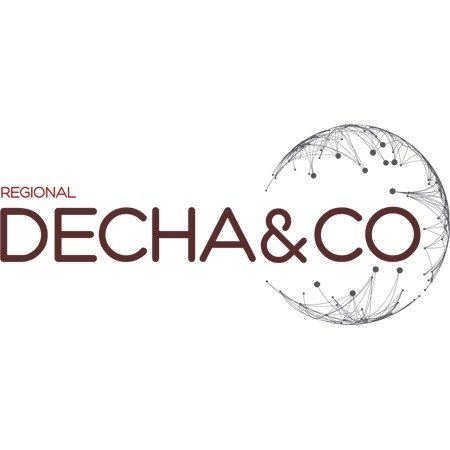Best Public-Private Partnerships (PPP) Lawyers in Yangon
Share your needs with us, get contacted by law firms.
Free. Takes 2 min.
List of the best lawyers in Yangon, Myanmar
About Public-Private Partnerships (PPP) Law in Yangon, Myanmar
Public-Private Partnerships (PPP) in Yangon, Myanmar are collaborative agreements between public sector entities, such as the government, and private companies for the delivery of public infrastructure, services, or projects. These partnerships aim to leverage the efficiency and capital of the private sector while addressing public needs like transportation, energy, water supply, and urban development. PPP arrangements typically involve long-term contracts where private parties may design, build, finance, operate, and sometimes transfer infrastructure back to the government. In recent years, Myanmar has been emphasizing PPP frameworks to promote economic growth, attract investment, and improve public service delivery in Yangon and across the country.
Why You May Need a Lawyer
Understanding the legal complexities of PPP arrangements in Yangon can be challenging. You may need legal assistance in the following situations:
- If you are a private investor seeking to participate in a government project and require guidance on compliance and contractual obligations.
- If you are a public sector entity planning to initiate a PPP project and want to structure it in accordance with Myanmar laws.
- When you need help with negotiation, drafting, or reviewing of PPP contracts, concession agreements, or joint venture documents.
- If disputes arise between the public and private partners related to performance, payments, or regulatory issues.
- If you need clarification on the risk allocation, procurement processes, or rights and liabilities of each party.
- When you require assistance with permits, licenses, approvals, or compliance with environmental and social safeguards.
A qualified lawyer can help you navigate these issues, avoid pitfalls, and ensure your interests are protected throughout the PPP process.
Local Laws Overview
Yangon follows national PPP frameworks, most notably the Myanmar Public-Private Partnership Centre’s guidelines and relevant laws like the Myanmar Investment Law (2016), the Financial Institutions Law, and sector-specific regulations. The government has issued policies and procedures to promote transparency, competitive bidding, and fair project evaluation. Key aspects to consider include:
- Project Identification and Approval: Projects must be aligned with national and regional priorities and are subject to feasibility studies followed by governmental approval.
- Procurement: PPP projects often require an open and competitive bidding process designed to ensure fairness and value for money.
- Contracting: Agreements must clearly outline roles, responsibilities, risk-shares, payment mechanisms, performance standards, and dispute resolution mechanisms.
- Regulation and Oversight: Specific government bodies oversee PPP implementation, monitoring compliance, and enforcing contractual terms.
- Foreign Investment: Foreign entities can participate in PPPs subject to investment approvals and sector-specific restrictions under the Myanmar Investment Law.
- Dispute Resolution: Contracts typically include arbitration or other dispute mechanisms, often in accordance with international arbitration standards.
A clear understanding of these regulations is vital before entering into a PPP arrangement in Yangon.
Frequently Asked Questions
What is a Public-Private Partnership (PPP)?
A PPP is a collaborative arrangement where the public sector partners with private entities to provide public services or infrastructure by sharing resources, risks, and rewards.
What types of projects qualify as PPPs in Yangon?
Common PPP projects include transportation infrastructure, energy generation, water supply systems, urban development, waste management, and healthcare facilities.
Who can participate in PPPs in Yangon?
Private local and foreign companies, consortia, and investors can participate, provided they meet eligibility criteria set by the relevant authorities.
What are the benefits of engaging in a PPP?
PPPs can provide access to capital, expertise, and innovation from the private sector, while the government ensures public interest and regulatory compliance.
Are foreign investors allowed to join PPPs?
Yes, foreign investors can participate, but they must comply with regulations under the Myanmar Investment Law and may be subject to sector-specific restrictions.
How are risks shared in a PPP?
Risk allocation is negotiated in the contract, with clear assignment of construction, financial, operational, legal, and market risks between the parties.
Do PPP contracts require government approval?
Yes, all major PPP contracts need approval from relevant government agencies, such as the Ministry of Planning and Finance or sector-specific ministries.
What dispute resolution mechanisms are used?
Most PPP agreements include arbitration clauses or specify other legal avenues such as mediation or court action as agreed by both parties.
What is the typical length of a PPP agreement?
PPP contracts usually range from 5 to 30 years, depending on the project type, complexity, and required investment recovery period.
What should I consider before signing a PPP contract?
Carefully review all financial, operational, environmental, and legal obligations. It is strongly advised to consult with an experienced lawyer before proceeding.
Additional Resources
For more information and assistance with PPPs in Yangon, Myanmar, consider reaching out to the following:
- Myanmar Public-Private Partnership Centre
- Ministry of Planning and Finance (PPP Unit)
- Myanmar Investment Commission (MIC)
- Yangon City Development Committee
- Myanmar Bar Association
- International Finance Corporation (IFC Myanmar)
- Local law firms specializing in infrastructure and investment law
These organizations can offer guidance on regulations, project opportunities, legal compliance, and contact with sector specialists.
Next Steps
If you are considering entering into a Public-Private Partnership in Yangon or need legal support for an existing arrangement, follow these steps:
- Clarify your objectives and the scope of your involvement in the PPP project.
- Gather all pertinent documents, such as previous contracts, business profiles, project proposals, and regulatory guidelines.
- Consult with a lawyer who specializes in PPP, infrastructure, or investment law in Myanmar.
- Discuss your rights, obligations, potential risks, and required legal processes with your lawyer.
- Collaborate with regulatory bodies and relevant authorities to ensure compliance at every stage.
Early legal advice can help you avoid common mistakes and protect your interests as you engage in PPP projects in Yangon, Myanmar.
Lawzana helps you find the best lawyers and law firms in Yangon through a curated and pre-screened list of qualified legal professionals. Our platform offers rankings and detailed profiles of attorneys and law firms, allowing you to compare based on practice areas, including Public-Private Partnerships (PPP), experience, and client feedback.
Each profile includes a description of the firm's areas of practice, client reviews, team members and partners, year of establishment, spoken languages, office locations, contact information, social media presence, and any published articles or resources. Most firms on our platform speak English and are experienced in both local and international legal matters.
Get a quote from top-rated law firms in Yangon, Myanmar — quickly, securely, and without unnecessary hassle.
Disclaimer:
The information provided on this page is for general informational purposes only and does not constitute legal advice. While we strive to ensure the accuracy and relevance of the content, legal information may change over time, and interpretations of the law can vary. You should always consult with a qualified legal professional for advice specific to your situation.
We disclaim all liability for actions taken or not taken based on the content of this page. If you believe any information is incorrect or outdated, please contact us, and we will review and update it where appropriate.









